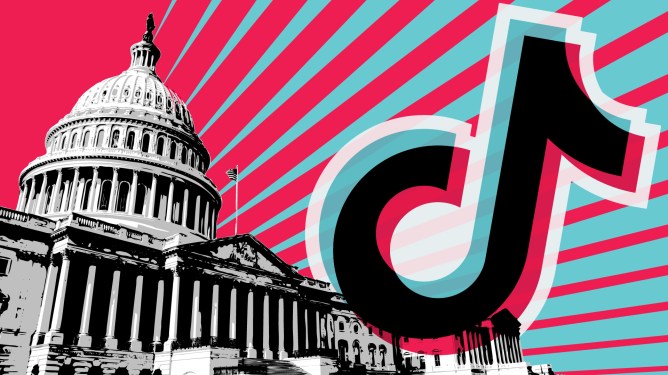Fortnite maker Epic Games is not happy about how Apple intends to comply with a district court’s injunction that permitted app developers to direct users to their own websites and payment platforms — a court order that came into effect following the Supreme Court’s decision to not hear the Apple antitrust case, leaving the current ruling to stand. Though Apple had largely won the case, as the court decided it was not a monopolist, a judge ruled that app makers should be able to steer their customers to the web from links or buttons inside their apps, something that forced Apple to change its App Store rules.
But Apple’s compliance doesn’t give app makers the victory they had hoped, as the tech giant aims to still charge commissions on purchases made outside of apps — a decision Epic aims to challenge in court.
According to statements made by Epic Games CEO Tim Sweeney, shared on X, Apple’s “bad-faith” compliance undermines the judge’s order that would have allowed buttons or external links “in addition to [in-app purchases].”
The Ninth Circuit Court had ruled on one count of out 10 in favor of Epic in its decision, finding that Apple violated California’s Unfair Competition law. The decision meant Apple had to remove the “anti-steering” clause from its agreement with App Store developers. This clause for years had prevented app developers from directing their customers to other ways to pay for in-app purchases or subscriptions from inside their apps, leading to confusing screens or broken features, where customers would have to figure out on their own how to make the necessary purchases from the developer’s website.
Apple updated its App Store Guidelines following the Supreme Court’s decision but with a lot of caveats. It said that developers would still have to pay a 27% cut on purchases, instead of 30%, and developers in Apple’s Small Business Program or auto-renewing subscriptions in their second year would be reduced to 12%, instead of 15%. This three percentage point discount is similar to what Google is offering through its User Choice billing pilot program, which counts Spotify and Bumble among its early adopters. In Google’s case, it reduced the required commissions by 4%. But these small discounts aren’t enough to make alternative payment processing worthwhile for most developers who have to pay at least that much in payment processing fees, many have argued.
Sweeney agrees, noting in his post today, shared on X, that developers aren’t able to offer their digital items “more cheaply on the web after paying a third-party payment processor 3-6% and paying this new 27% Apple Tax.”
Apple filed a bad-faith “compliance” plan for the District Court’s injunction. It totally undermines the order allowing “buttons, external links, or other calls to action that direct customers to purchasing mechanisms, in addition to IAP”.https://t.co/ofbuMwe7SH
— Tim Sweeney (@TimSweeneyEpic) January 16, 2024
In addition, he points out that Apple is strictly controlling how the new links and buttons must appear. In addition to forcing developers to apply for permission, the links can’t be in the app’s ordinary payment flow but must be in a separate section of the app, Sweeney explains. The links also open to a generic web browser session, forcing users to log in again to the developer’s website — an additional point of friction in making a non-App Store purchase. And then customers will have to initiate a search to find the item they wanted to buy, after logging in.
Apple will also “front-run competing payment processors with their own ‘scare screen’ to disadvantage them,” Sweeney says, meaning that Apple will warn users about the issues that may arise when transacting with a developer outside its App Store. For instance, users won’t be able to cancel their subscriptions within Apple’s App Store or request refunds — they’ll have to do this through the developer’s website.
Sweeney says Epic will contest Apple’s compliance in District Court.
I love this screenshot, if you look closely you can see the content designers losing the fight with the lawyers https://t.co/uwUcqMrb0T
— Owen Williams ⚡ (@ow) January 17, 2024
The developer lobbying group, Coalition for App Fairness, which also includes Epic, issued its own statement on Apple’s new App Store rules.
“Apple’s approach to ‘compliance’ with the District Court’s decision will not benefit developers and consumers. The new 27 percent commission on payments it does not process defies the intention of the District Court’s injunction and undermines competition,” said Rick VanMeter, executive director of the Coalition for App Fairness. “These changes do nothing to enhance consumer choice, lower prices for in-app purchases or inject competition into Apple’s walled garden. It is precisely this type of abusive, monopolistic behavior that makes it imperative for Congress to pass the Open App Markets Act,” he added.
Update, 1/14/24, 2:05 p.m. ET:
Spotify also issued the following statement about Apple’s new App Store policies:
Once again, Apple has demonstrated that they will stop at nothing to protect the profits they exact on the backs of developers and consumers under their app store monopoly. Their latest move in the U.S. — imposing a 27% fee for transactions made outside of an app on a developer’s website — is outrageous and flies in the face of the court’s efforts to enable greater competition and user choice. This action follows similar moves by Apple to circumvent compliance in South Korea and The Netherlands. However, the EU’s Digital Markets Act (DMA) will finally put an end to this false posturing, which is essentially a recreation of Apple’s fees. We strongly urge the European Commission to act swiftly and decisively to prevent Apple from implementing similar fees, which are prohibited under the DMA.
Apple allows devs to promote subscriptions on the web with a 27% commission





